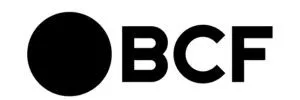- within International Law, Corporate/Commercial Law, Media, Telecoms, IT and Entertainment topic(s)
- with readers working within the Healthcare industries
On June 26, 2024, the Quebec government published the final version of the Regulation to amend mainly the Regulation respecting the language of commerce and business, ahead of the new provisions of the Charter of the French language relating to signage and packaging, which will be effective as of June 1, 2025, following the adoption of Bill 96.
Prior to the adoption of this bill, the Charter already required
that all labelling on a product (including its packaging) and all
commercial signage in Quebec must be drafted in French. The
Regulation respecting the language of commerce and business (the
"Regulation") provided for exceptions to
this rule, including the one related to trademarks, and permitted
text content in a language other than French of a "recognized
trademark" within the meaning of the Trademarks Act.
At the time, despite the Office Québécois de la
langue française's position of restrictively
interpreting the term "recognized trademark" to limit the
application of this exception to duly registered trademarks only,
this term was interpreted more broadly by the courts, which ruled
that the exception extends to all trademarks, registered or not (as
long as they are truly used as a trademark).
Bill 96 amends the Charter to restrict the scope of this exception
to duly registered trademarks, which sparked outrage in a large
part of the business community both in and outside Quebec.
It should be noted that obtaining a trademark registration in
Canada generally requires a two- to three-year wait in the best of
cases. To mitigate the rigidity of this ill-received statutory
amendment, an earlier version of the draft Regulation equated a
pending trademark application with a registered trademark. This
proposed easing, however, remained problematic for many companies
whose trademarks are not eligible for registration (for a variety
of reasons), and considering that the costs necessary to register a
trademark (and even more so to register multiple trademarks)
constitute a barrier for smaller businesses and those whose
business in the province is fairly limited.
Surprisingly, the most recent version of the Regulation published
on June 26, 2024, re-establishes the "recognized
trademark" exception for non-French language inscriptions on
products or commercial signs, thus allowing a trademark, whether
registered or not, to benefit from the exception.
In other words, the Regulation completely overrides a major
amendment to the Charter and establishes new parameters that apply
to this exception.
Here is a summary of the new rules applicable in Quebec as of June
1, 2025, regarding the exception allowing a trademark to appear
only in a language other than French:
- Products, packaging, and accompanying documents: all recognized trademarks in accordance with the Trademarks Act (whether registered or not) in a language other than French may be used without further consideration or requirement. However, if the trademark that is in a language other than French includes generic or descriptive components (such as ingredients, colour, fragrance or other product characteristics), a French version of the generic or descriptive components must also appear.
- Commercial signage: Signage visible from the exterior (including through storefront windows) must include French terms, such as a generic term, a description, or a slogan. In addition, the space dedicated to the French text must be at least twice as large as that occupied by the trademark or any other non-French text
- Commercial documents available to the public, such as catalogues, brochures, flyers, directories, and order forms: The rule in effect prior to Bill 96 remains essentially unchanged: a recognized trademark in accordance with the Trademarks Act (whether registered or not) does not have to be translated to appear on these documents and does not need to be balanced by an additional presence of text in French.
We would like to draw your attention to the fact that if you do
wish to use your trademark solely in a language other than French
on products, their packaging, and their accompanying documents, in
a public display in Quebec or on the aforementioned commercial
documents, no French version of this trademark is required to be
registered. If that is the case, then the French version must
necessarily appear on these inscriptions and displays.
Nevertheless, even if the final version of the Regulation extends
the exception to unregistered trademarks, it is strongly
recommended that you register your trademark. Doing so will make it
much easier to prove, if need be, that your trademark benefits from
the exception under the Regulation.
The content of this article is intended to provide a general guide to the subject matter. Specialist advice should be sought about your specific circumstances.



